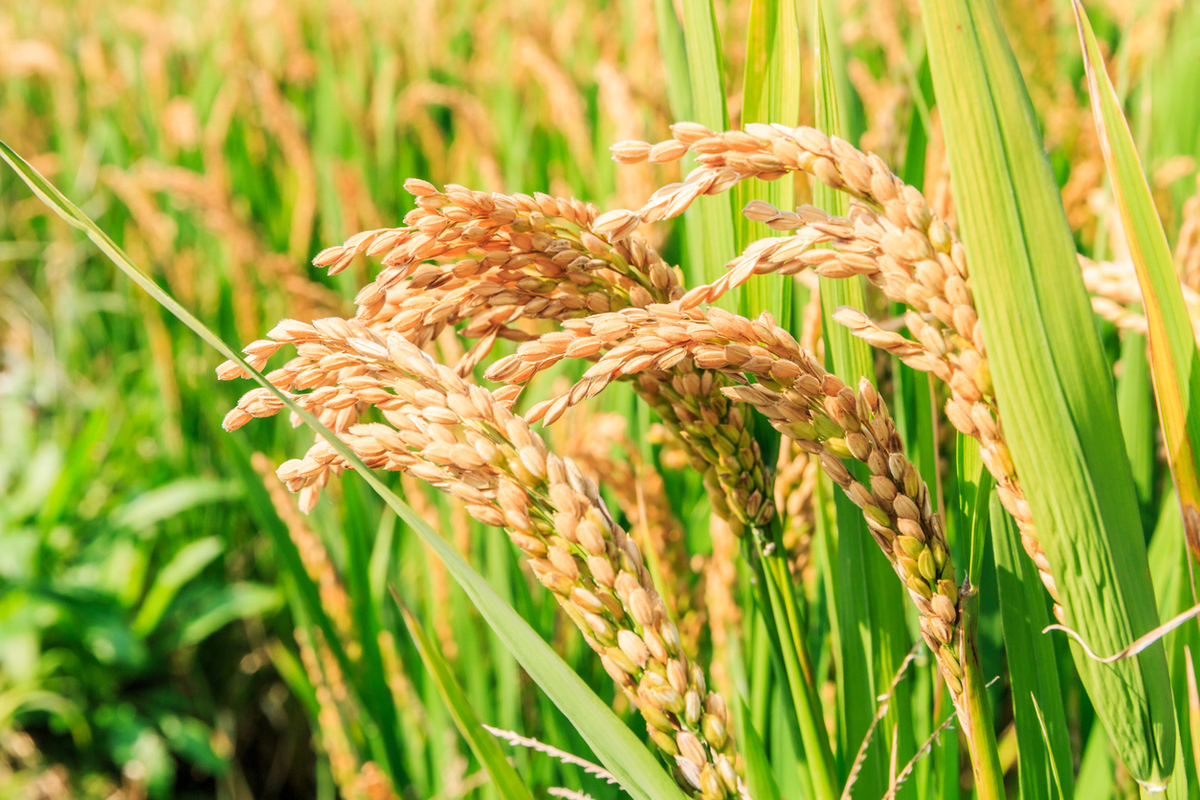
GM Rice Shows Enhanced Resistance to Salinity Stress
May 28, 2025| |
A researcher from Allama Iqbal Open University in Pakistan developed a genetically modified (GM) rice with enhanced resistance to salinity stress. The study highlights the need for rice cultivars that can withstand high salinity levels to ensure sustainable food production.
Salinity stress significantly reduces water absorption, disrupts membrane stability, impairs photosynthesis, and ultimately leads to drastic yield losses. As a staple food for more than half the global population, rice is among the most vulnerable crops to salinity. Traditional breeding methods are inadequate to meet the urgent need for salt-tolerant rice varieties, especially in the face of worsening salinity caused by climate change.
The study incorporated the genes OsSOS1, OsHKT1, OsDREB1, and OsNAC6 to develop rice with enhanced salt tolerance. The results show higher germination rates, longer root growth, greater chlorophyll content, and elevated levels of osmoprotectants under various NaCl concentrations. The transgenic rice shows increased activity of antioxidant enzymes, which helps mitigate oxidative stress and maintain cellular integrity. The results of the study show great potential for improved crop resilience in saline environments.
For more information, read the study from the Indus Journal of Animal and Plant Sciences.
| |
You might also like:
- Researchers Identify Modulator of Salt Tolerance in Rice
- CRISPR Rice Shows Enhanced Tolerance to Salt Stress
- Multiplex Genome Editing Improves Agronomic Traits of Salt-tolerant Rice SR86
Biotech Updates is a weekly newsletter of ISAAA, a not-for-profit organization. It is distributed for free to over 22,000 subscribers worldwide to inform them about the key developments in biosciences, especially in biotechnology. Your support will help us in our mission to feed the world with knowledge. You can help by donating as little as $10.
-
See more articles:
-
Plant
- Texas A&M AgriLife Scientists Find New Defense Against Hard-To-Treat Plant Diseases
- Kenyan Farmers Seek Financial Assistance in Adopting Bt Cotton
- Revised Regulations on the Protection of New Plant Varieties Released in China
- GM Rice Shows Enhanced Resistance to Salinity Stress
- Australian OGTR Receives License Application for Commercial Release of GM Purple Tomato
- EFSA Releases Assessment of GM Oilseed Rape MON 88302
- Experts Support Product-Based Regulatory Approach for GMOs
-
Food
- ISAAA Announces New Dates and Venue for ASCA8: Event Relocates to Manila in September 2025
-
Read the latest: - Biotech Updates (January 21, 2026)
- Gene Editing Supplement (January 28, 2026)
- Gene Drive Supplement (February 22, 2023)
-
Subscribe to BU: - Share
- Tweet

